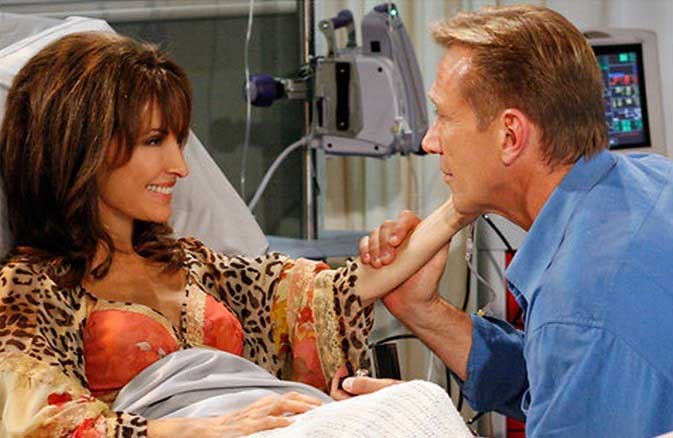
Soaps and Dissertations
On July 17, 1986, the 13th Daytime Emmy Awards featured Susan Lucci losing, for the 7th time, including six in a row! But Susan Lucci wasn’t done, and therein lies a lesson for dissertation students…
Susan Lucci portrayed Erica Kane in ABC’s All My Children for 41 years, from 1970 through the show’s cancellation in 2011. She received her first Emmy nomination in 1978, and lost. She earned her next nomination in 1981, and lost. In fact, she then went on to garner a nomination every year through 1998 (except 1994), and lose, before finally winning in 1999.
There’s a clear lesson here for doctoral students working to complete their dissertations. No, I certainly don’t want you to spend 19 years on your dissertation.
But, I do want you to recognize the incredible importance persistence plays in getting your dissertation done.
One of my students went through two dissertation chairs and two completely different chair-approved proposals. Years into her dissertation journey, after being assigned a third chair who told her to start over on a third proposal, she reached out for support and finally graduated about a year later.
Several of my students have dealt with divorces, illnesses, and deaths in the family, but kept at it and graduated.
Some have had chairs quit or get fired. Many have dealt with difficult committee members. Others have loss their data sources just before data collection was to begin.
Winston Churchill once said, “If you’re going through hell, keep going.”
Persistence is easily the most important discriminator separating those who graduate from those who do not.
I’ve mentioned other critical components to dissertation success in this blog before — clarity, simplicity, and professional detachment. But none of those issues matter if you don’t possess the necessary “sticktuitiveness.”
So, how do you persist through such a long, difficult process as a dissertation? Here’s the Three-Point, What-Would-Susan-Lucci-Do Dissertation-Completion Process:
First, you’d better have a compelling reason to want to finish. Many of our students are working to earn pay raises or promotions at work. Others want to be role models for their children or others. But, the most powerful motivation seems to arise from wanting to change the world.
What impact will you make when you earn your doctorate? What platform will you have and who will be able to hear your voice after graduation? At what table will you finally get a seat?
These goals are heart-felt. They speak directly to your calling, your life’s work. You’re never going to quit on these goals.
Second, you need support to ensure that your persistence is not wasted on inefficiency, confusion, and frustration. One of my students actually completed her dissertation on the types of support required for remote doctoral student to successfully complete their dissertations.
She found that students need academic support and emotional support. Academic support is help in understanding what to do, when, and how. Emotional support helps you feel like you can do it. Emotional support strengthens your resolve, leading directly to increased persistance.
And third, you need a plan to guide your efforts. Persistence without a plan is kind of like thousands of monkey banging away on typewriters. It makes a lot of noise and churns through a ton of paper, but it takes virtually forever to produce anything of value.
Lucius Annaeus Seneca observed, “If one does not know to which port one is sailing, no wind is favorable.”
So, you must develop a plan for what you’re going to do, how you’re going to do it, and when. At a strategic level, your plan should consider the elements we’ve discussed before — clarity, simplicity, and professional detachment. At a more tactical level, you plan should include work schedules, milestones, and accountability mechanisms.
So, be like Susan Lucci. Don’t give up. Stick to it. Keeping going. Persist.
